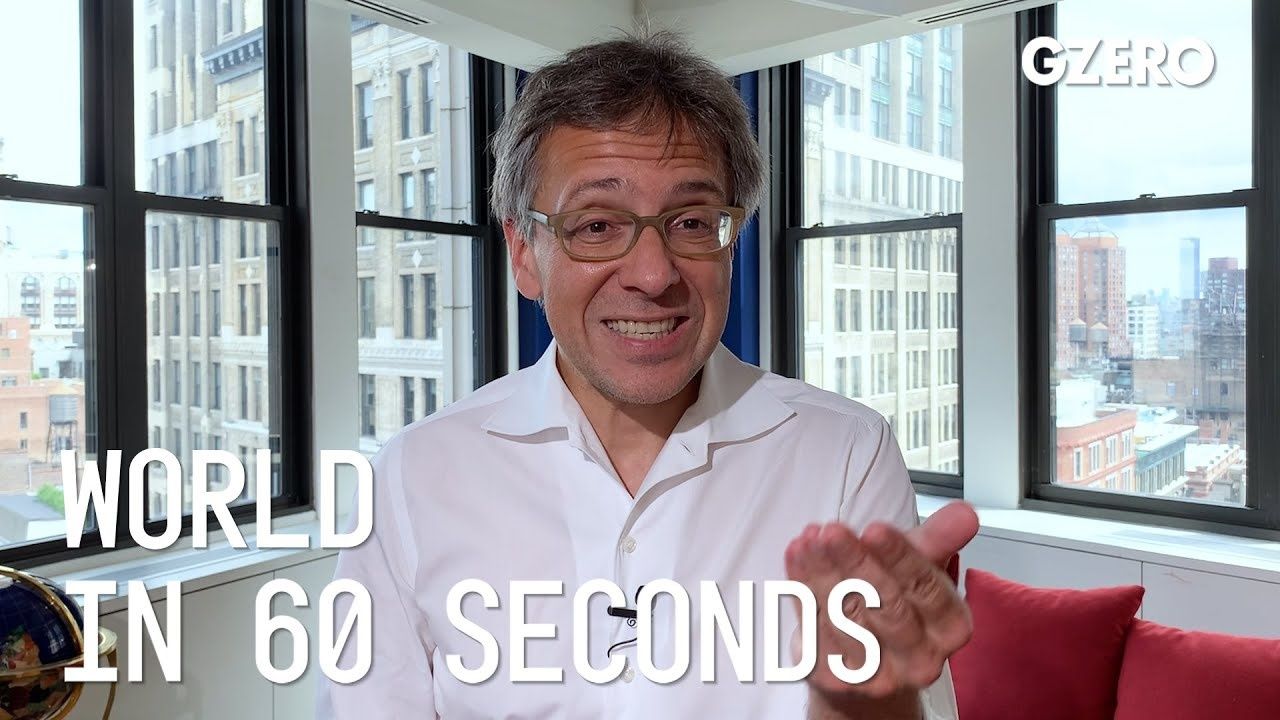US & Canada
Hong Kong security law; Putin & the White House; India's TikTok ban

Hong Kong Security Law; Putin & the White House; India's TikTok Ban | World In :60 | GZERO Media

Ian Bremmer shares his insights on this week's World In (More Than) 60 Seconds:
What does Beijing's new security law mean for Hong Kong?
It means the end of one country, two systems. A lot of people are going to say, "Oh, well, it's only about certain cases and it's not getting rid of the entire independent judiciary. The Chinese government says it's not going to change the way you do business in Hong Kong." It is going to immediately put an immensely chilling effect on anyone that might want to utter a word opposed to Hong Kong democracy, communist party control, one state, two systems. It is going to be defined by the Chinese government. It's been completely written by them. The Hong Kong government didn't even see it. And it has less to do with how they're going to apply it as their ability to use it as a threat against anyone that might otherwise want to demonstrate, want to write or speak about something that's problematic for China.
If you are an investment type or a corporate type, and you've set up your business in Hong Kong to have access to the Chinese market, but you want to make sure your expats and your business are in a place that has rule of law and an independent judiciary, the idea that you're going to be able to do that going forward in Hong Kong is really not the case. And so, it's a question of when you decide to reduce that exposure, as opposed to whether this is the tipping point for Hong Kong relations with the West and with China.
Second, will we see a Putin White House visit before the United States election?
I don't expect so. I mean, it's possible, but Trump isn't gaining any support by cozying up to Putin right now. Of course, this issue about whether he did or did not know personally about the Kremlin providing direct cash payments to members of the Taliban for targeting and killing American soldiers on the ground there, is only making the Russia issue worse. Even some Republicans in the House and Senate have raised some questions around that. None of America's allies want Russia to be invited to the G7 Summit, which Trump is trying to host. And if he's not welcomed, then Putin is not just going to show up to be on the sidelines. And the idea that Trump's going to have a separate White House meeting with Putin in the next few months, seems to me one that would be shat upon by pretty much every Trump advisor around him. And so I would say, no, that's probably not going to happen.
What does India's TikTok ban mean for the social media company?
Well, I mean almost 60 apps banned overnight by the Indian government. All Chinese apps, all the result of the confrontation in the border zone, in the Himalayas between the Indians and the Chinese. The Chinese killed some 20 Indian soldiers. They've tried to deescalate, and the Indians are not going to engage militarily because they have nowhere close to the capabilities militarily the Chinese do. They'd get pasted, but this is a response. It's a strong economic response. And the Indian government is also looking to promote their own tech firms.
TikTok in particular, something like almost A hundred million downloads since the beginning of the year in India. It's an extraordinary explosion of success for that company, but also one that is more than happy to censor anti-Chinese content. But when the Indian government requests them to censor anti-Indian content, they don't do it. Very different from Facebook. All of that put together is why TikTok got banned. And it's not clear that the Chinese have anything useful to do against the Indians, because if they hit them back economically India is critical for a lot of key pharmaceutical ingredients that the Chinese particularly need right now in a pandemic. I really don't think the Chinese want to go that route, so it may well be that a that they get away with this. And that's where we are.
Finally, what are the odds that you, meaning me, will be visiting Europe before the end of the year?
I think pretty low, honestly. Certainly, there are a bunch of events that are still, people trying to tell me they'd like to have me come various places by the end of the year, but we're probably going to see a second wave in the United States and in Europe. I think that as that occurs, the idea that people are going to be getting on planes in large numbers, attending events in large numbers, especially when Zoom and Microsoft products and all the rest seem to be working perfectly well, I think it's well until next year before you see significant international travel. And yeah, I'm going to be a part of that.
At the 2026 World Economic Forum in Davos, GZERO’s Tony Maciulis spoke with Ariel Ekblaw, Founder of the Aurelia Institute, about how scaling up infrastructure in space could unlock transformative breakthroughs on Earth.
On Friday, US officials warned the transitional council in charge of Haiti not to remove interim Prime Minister Alix Didier Fils-Aimé, ahead of a deadline for the council to step down on Feb. 7.
The president of the tiny eastern European country has suggested possibly merging with a neighbor.
$25 billion: The minimum amount of investment required to fulfil Jared Kushner’s ambitious property plan for Gaza.